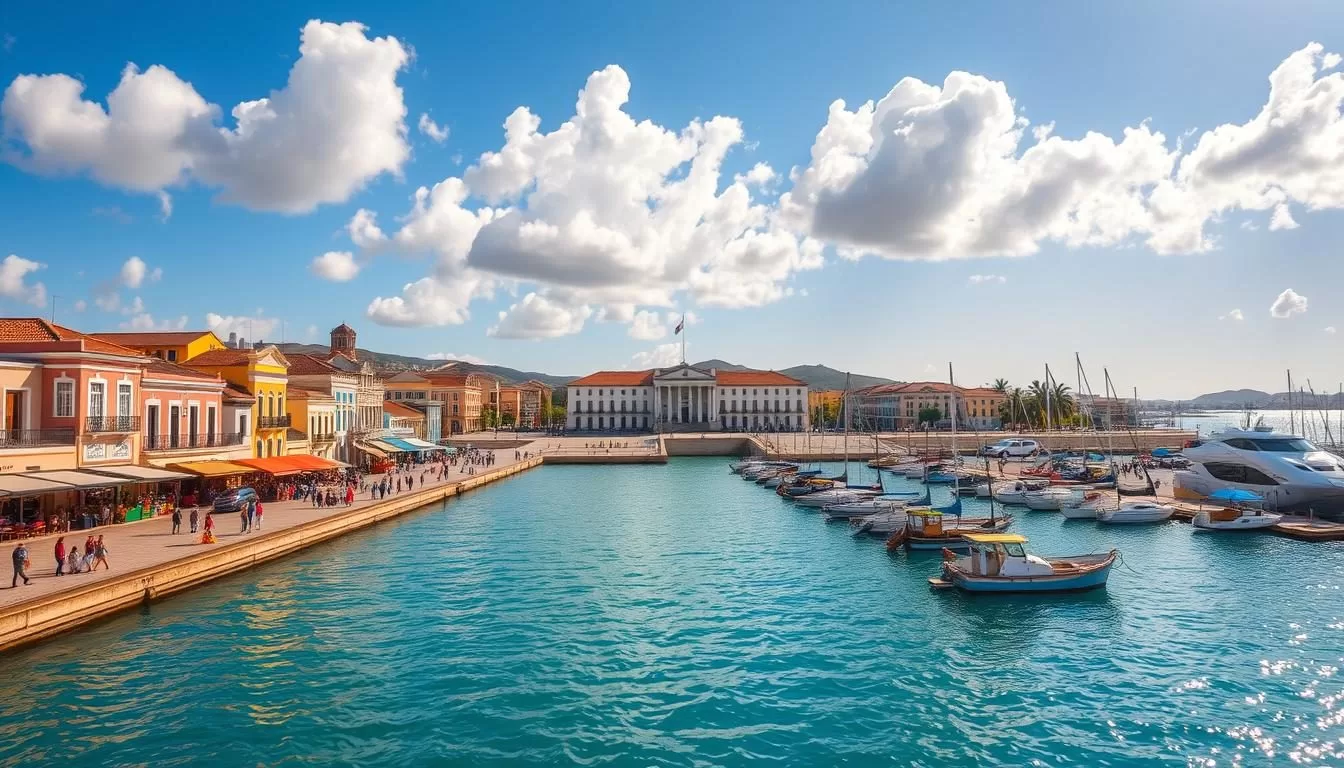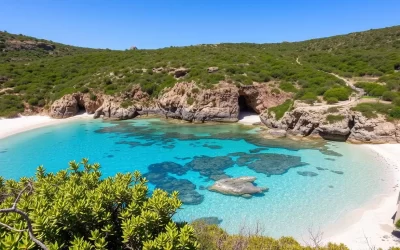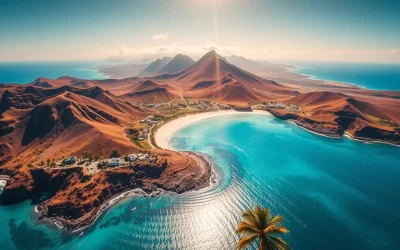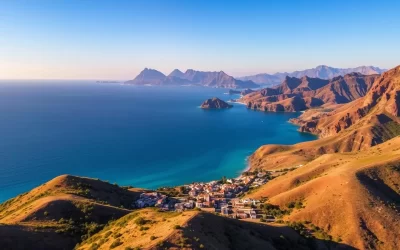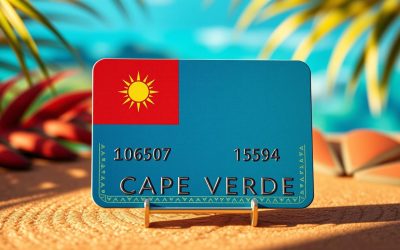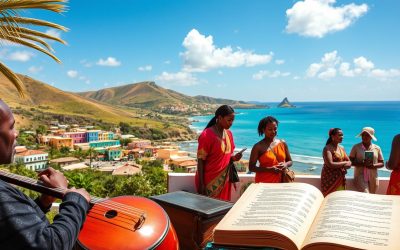✓ Accommodations✓ Flights✓ Rental Cars
You’re about to discover the vibrant capital city of Cape Verde, a fascinating island nation located off the west coast of Africa. With a population of approximately 130,000, Praia is not just the capital but the biggest city on the island of Santiago, offering a unique blend of African, Portuguese, and Brazilian influences.
The city’s cultural attractions, architecture, and cuisine reflect this diverse heritage. When planning your visit, consider the best time to explore this destination. The dry and warm weather from November to May makes it ideal for visiting historic sites and enjoying the beautiful beaches.
Whether you’re interested in history, culture, or simply relaxing on the beach, Praia has something for every type of traveler. This guide will take you through the top attractions, ensuring you make the most of your Cape Verdean adventure.
Discovering Praia: Cape Verde’s Vibrant Capital
As you step into Praia, the capital of Cape Verde, you’ll be greeted by a vibrant city that blends African and European influences. This city is not just the administrative heart of the country but also a cultural melting pot.
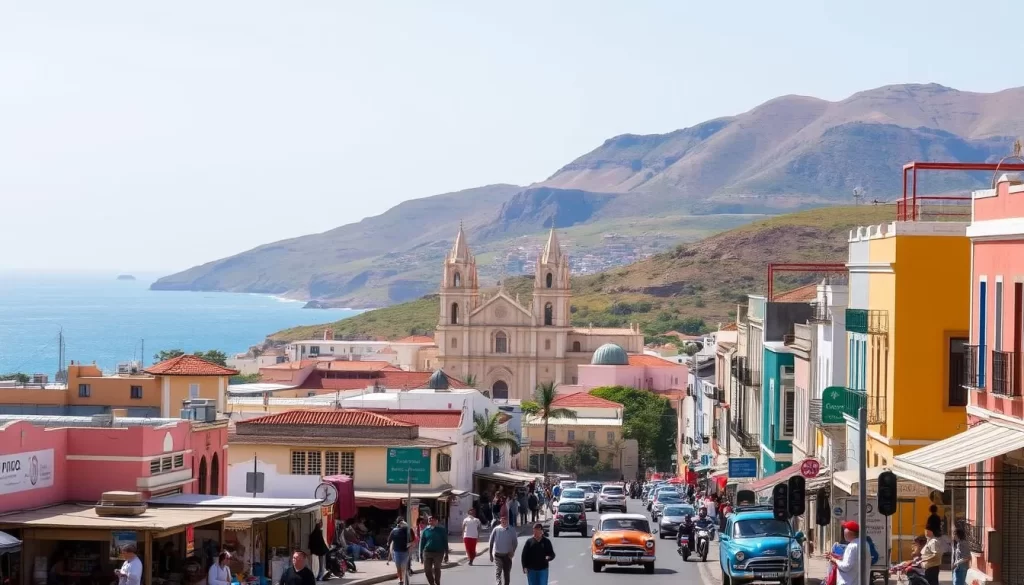
Where is Praia Located?
Praia is strategically located on Santiago, the largest island in the Cape Verde archipelago. This makes it an excellent base for exploring both the city and the surrounding areas. The city’s layout features a distinctive plateau, known locally as “Platô,” where the historic center is situated.
Best Time to Visit Praia
The best time to visit Praia is during the dry season, from November to June, when temperatures average between 70-85°F (21-29°C) and rainfall is minimal. This period is ideal for enjoying the city’s outdoor attractions and exploring the surrounding island.
| Season | Period | Weather |
|---|---|---|
| Dry Season | November to June | Warm and Sunny |
| Rainy Season | August to October | Rainfall and Higher Humidity |
Getting Around the City
Praia is a very walkable city, with the city center being compact enough to explore on foot. For further distances, you can take a taxi, but make sure to discuss the price before getting in. For day trips outside of Praia, consider renting a car to explore the island at your own pace.
By understanding the layout and the transportation options, you’re ready to explore the best of what Praia has to offer.
Exploring the Historic Plateau District
As you explore Praia, Cape Verde, you’ll discover the historic Plateau district, a treasure trove of the city’s rich history and culture. This elevated area in the city center of Praia offers panoramic views of the surrounding city and coastline, making it a perfect starting point for your adventure.
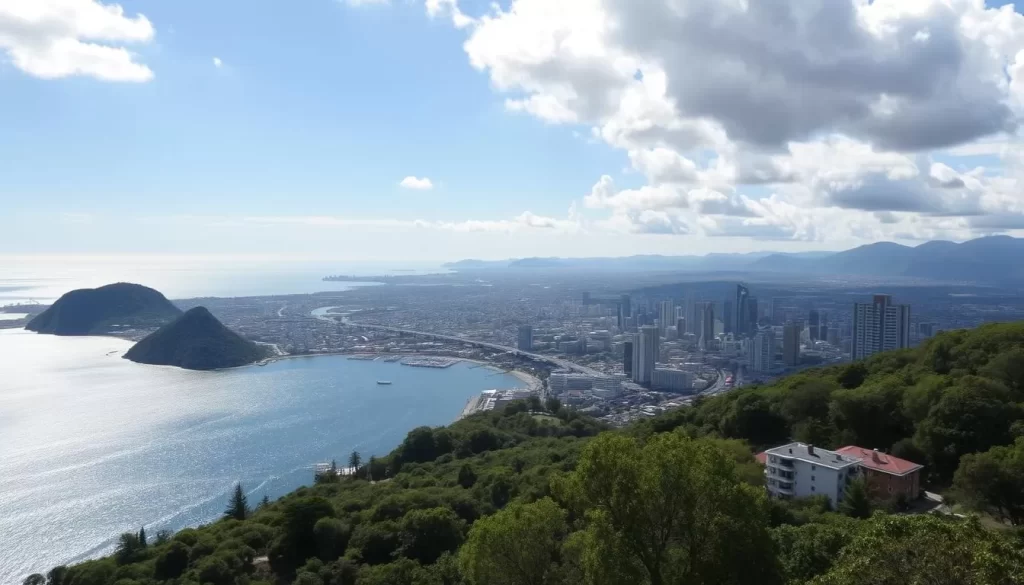
Praça Alexandre Albuquerque
Begin your exploration at Praça Alexandre Albuquerque, the main square that features a charming fountain, shade trees, and benches where locals gather throughout the day. This park is a great place to relax and enjoy the afternoon, taking in the vibrant atmosphere of the city center of Praia.
Presidential Palace
The Presidential Palace, with its striking neoclassical architecture dating back to 1894, stands as a reminder of Cape Verde’s colonial past and its transition to independence in 1975. Originally built for the Portuguese governor of Cape Verde, it has served as the presidential palace since the country’s independence.
Igreja Nossa Senhora da Graca
On the southeast corner of Praça Alexandre Albuquerque, you’ll find the Igreja Nossa Senhora da Graca, a Catholic church built between 1894 and 1902. While it may be modest compared to other Catholic churches, it holds significant importance to locals and features beautiful interior details worth appreciating.
Image of Igreja Nossa Senhora da Graca
Rua5 de Julho
Take a leisurely walk around the Plateau district by strolling down Rua5 de Julho, the main pedestrian street. This is where you can experience daily life in Praia as you pass colorful colonial buildings housing shops, cafés, and restaurants, giving you a glimpse into the local culture and way of life.
Image of Rua5 de Julho
As you take your time to explore the Plateau district, you’ll notice many historical buildings concentrated in this area, offering excellent photo opportunities and a deeper understanding of Cape Verde’s architectural heritage. The district is a testament to the city’s rich history and its evolution over time.
Praia, Cape Verde: Best Things to Do for History Buffs
With its rich cultural heritage and historical significance, Praia is an ideal destination for those fascinated by history. The city boasts several museums and historical sites that offer a glimpse into Cape Verde’s complex past, from its colonial era to its journey towards independence.
Museu Etnográfico da Praia
The Museu Etnográfico da Praia is a small yet fascinating museum located in the historic center of Praia, within a historic home. It houses a collection of artifacts donated by individuals and families from four Cape Verde islands in the early 1990s, showcasing the country’s rich cultural heritage. You’ll find exhibits related to basketry, pottery, agriculture, and fishing, providing insights into traditional Cape Verdean life.
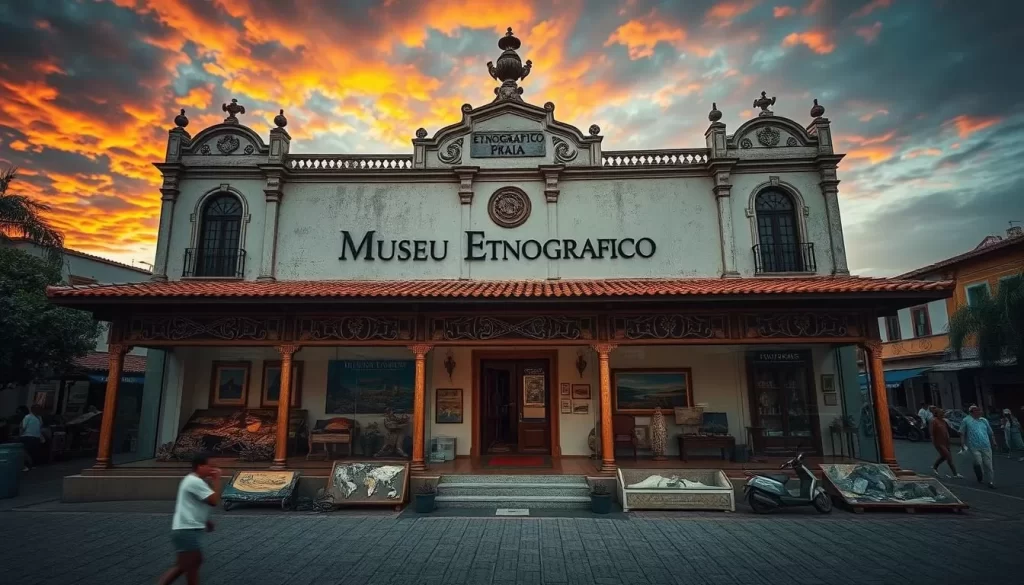
Núcleo Museológico da Praia (Archaeology Museum)
Although a bit hard to find, the Núcleo Museológico da Praia, or Archaeology Museum, is worth the visit. This small museum contains remarkable treasures recovered from shipwrecks off the coast of Cape Verde, highlighting the islands’ strategic position in historical maritime trade routes. With its unique collection, it offers a captivating glimpse into the maritime history of the region.
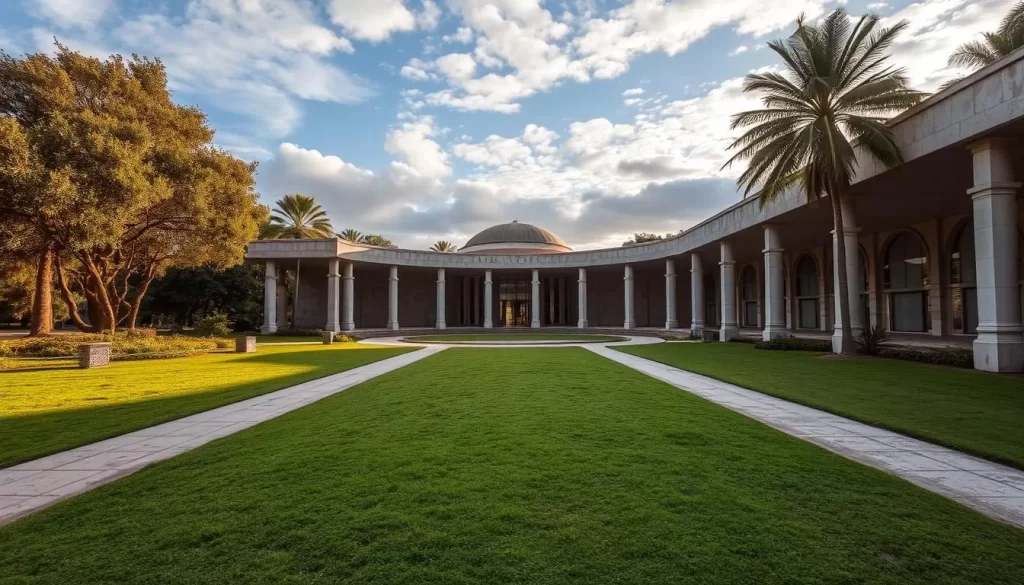
Lighthouse Dona Maria Pia
Visiting the Lighthouse Dona Maria Pia is one of the top things to do in Praia. Built in 1881, this octagonal lighthouse has been recently renovated and offers spectacular views of the Atlantic Ocean and the city’s coastline. Plans are underway to add a small museum, further enhancing its historical significance.
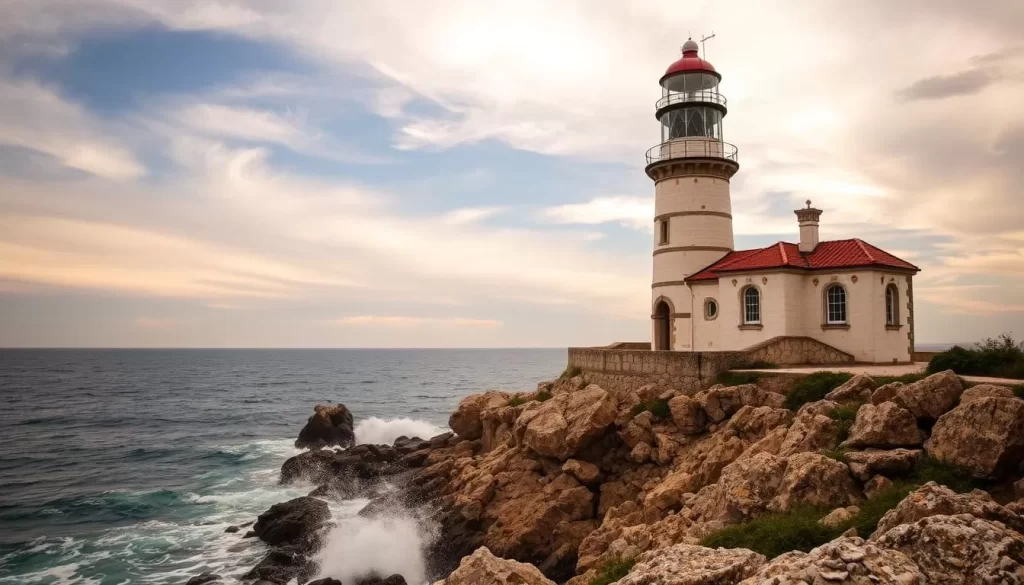
These historical sites collectively tell the story of Cape Verde’s complex history, making Praia a rewarding destination for history enthusiasts. By exploring these museums and landmarks, you’ll gain a deeper understanding of the cultural and historical foundations of this unique island nation.
Best Beaches in Praia
With its golden sands and crystal-clear waters, Praia’s beaches are a must-visit destination for any traveler to Cape Verde. The city’s coastline offers a variety of beaches that cater to different preferences, from lively spots perfect for families and young travelers to more secluded coves ideal for those seeking tranquility.
Quebra Canela Beach
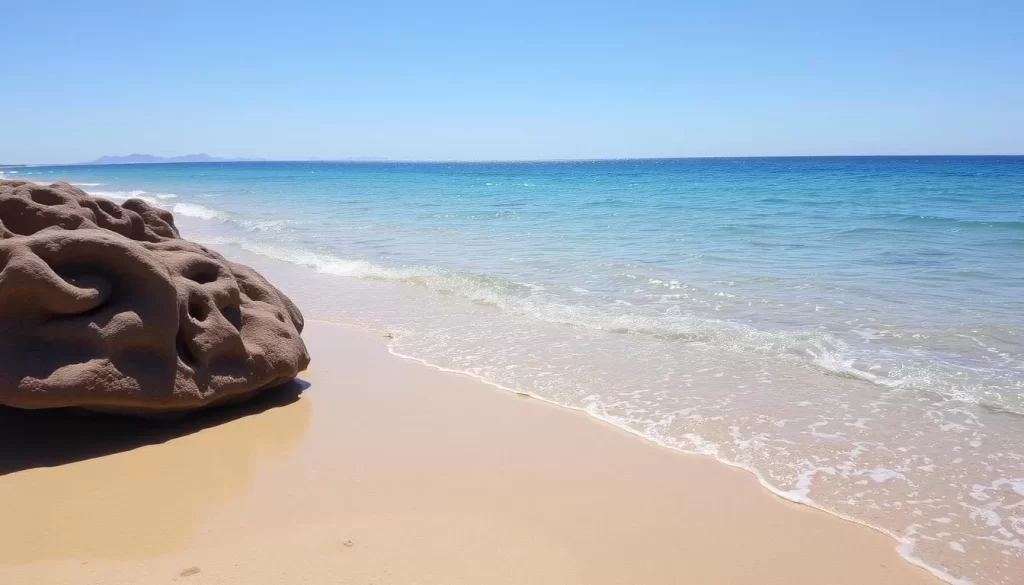
Quebra Canela Beach stands out as the most popular beach in Praia, featuring golden sands and a relaxed atmosphere. It’s a great place for swimming and sunbathing, though be mindful of some rocks in the water further out from shore. The beach comes alive on weekends with local families gathering, creating a vibrant atmosphere with impromptu music and games.
Prainha Beach
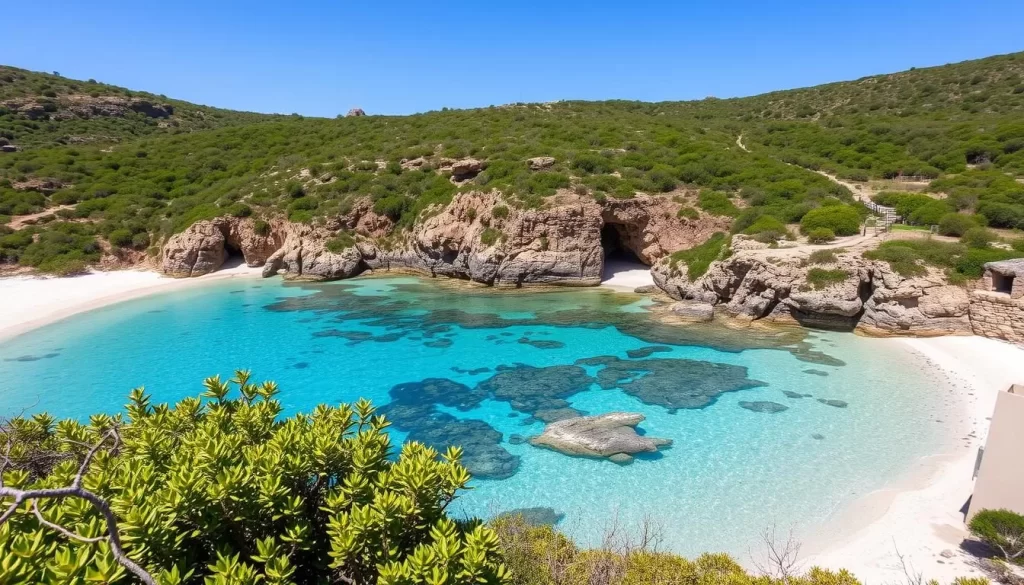
Prainha Beach offers a more secluded alternative with its sheltered cove setting, making it perfect for those seeking a quieter beach experience. Both beaches have nearby restaurants and bars where you can sample fresh seafood and traditional Cape Verdean dishes while enjoying ocean views. Early mornings at these beaches are particularly magical, with local fishermen bringing in their catch and the gentle morning light creating perfect photo opportunities of the coastline.
Local Culture and Markets
The local culture and markets in Praia are a treasure trove of experiences waiting to be discovered. As you explore this vibrant city, you’ll have the opportunity to immerse yourself in the authentic Cape Verdean way of life.
Sucupira Market
Sucupira Market is the heartbeat of local commerce in Praia, offering a wide range of goods from fresh produce and spices to handcrafted souvenirs and colorful textiles. This bustling market is the perfect place to experience the local culture and shop for unique souvenirs. Bargaining is a common practice here, so be prepared to negotiate prices.
The market is a sensory delight, with its vibrant colors, enticing aromas, and the melodic blend of Portuguese and Creole languages as locals negotiate and socialize. You’ll find everything you need to take a piece of Cape Verde back home, from traditional crafts to local delicacies.
Experience Cape Verdean Music and Dance
Cape Verdean music is an integral part of the cultural experience, with genres like morna and funaná being performed in local venues. You’ll have the opportunity to witness impromptu music sessions and dance performances throughout the city, particularly in the evenings when restaurants and bars come alive with local talent.
Engaging with locals at the market or music venues offers a glimpse into the warm hospitality that Cape Verdeans are known for, often resulting in recommendations for hidden gems not found in guidebooks. The blend of African and Portuguese influences creates a unique cultural identity that’s evident in everything from the food and music to the architecture and daily customs you’ll observe throughout Praia.
Must-Do Day Trips from Praia
Exploring beyond Praia, you can experience the rich history and diverse landscapes of Santiago island through exciting day trips. While Praia offers plenty to explore, taking day trips to nearby attractions allows you to experience the diverse landscapes and rich history of Santiago island.
Cidade Velha: UNESCO World Heritage Site
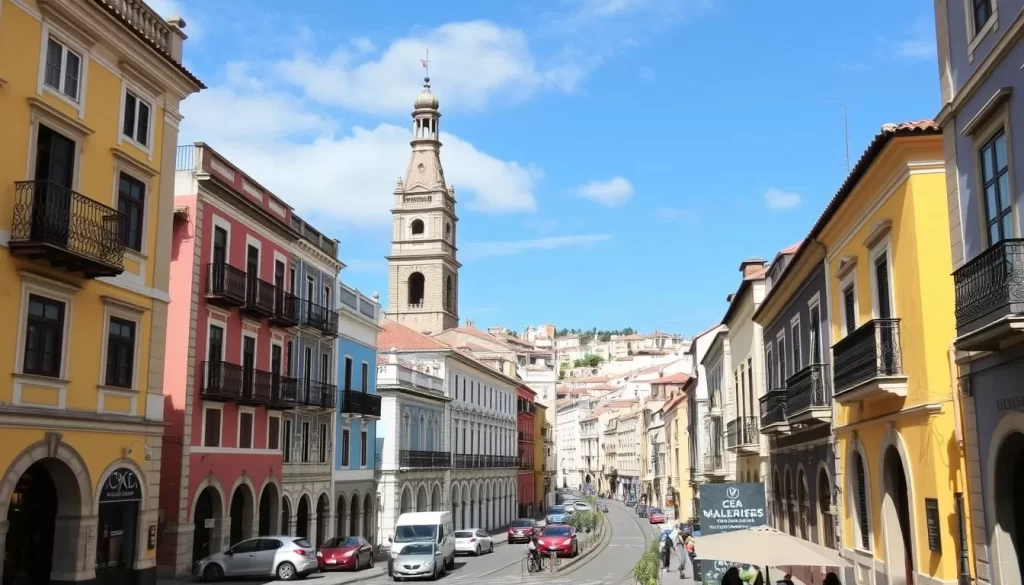
Cidade Velha, located just 25 minutes west of Praia, stands as Cape Verde’s oldest settlement and a UNESCO World Heritage Site, featuring historic landmarks like the Royal Fortress of São Filipe and the oldest colonial church in the tropics. You’ll step back in time as you walk Cidade Velha’s cobblestone streets, particularly the historic Rua Banana, and witness the sobering remnants of the slave trade that once operated from this port.
Serra Malagueta Natural Park
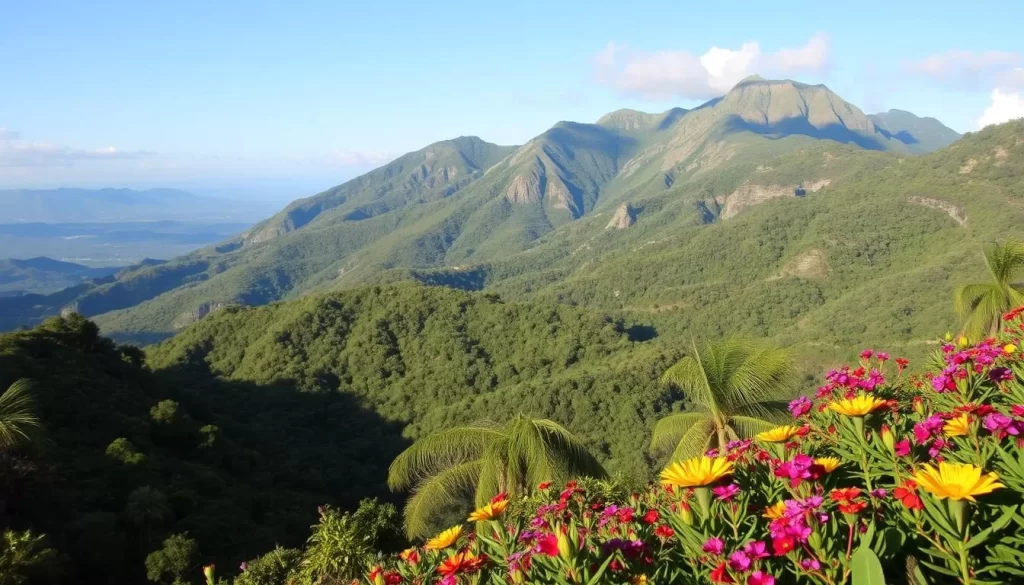
Serra Malagueta Natural Park, about an hour’s drive north of Praia, offers a complete contrast with its lush mountainous landscape, diverse flora and fauna, and hiking trails that provide spectacular views across the island. The park’s elevation creates a cooler microclimate, making it a refreshing escape from Praia’s heat and an excellent place for nature photography and birdwatching.
Tarrafal Beach Town
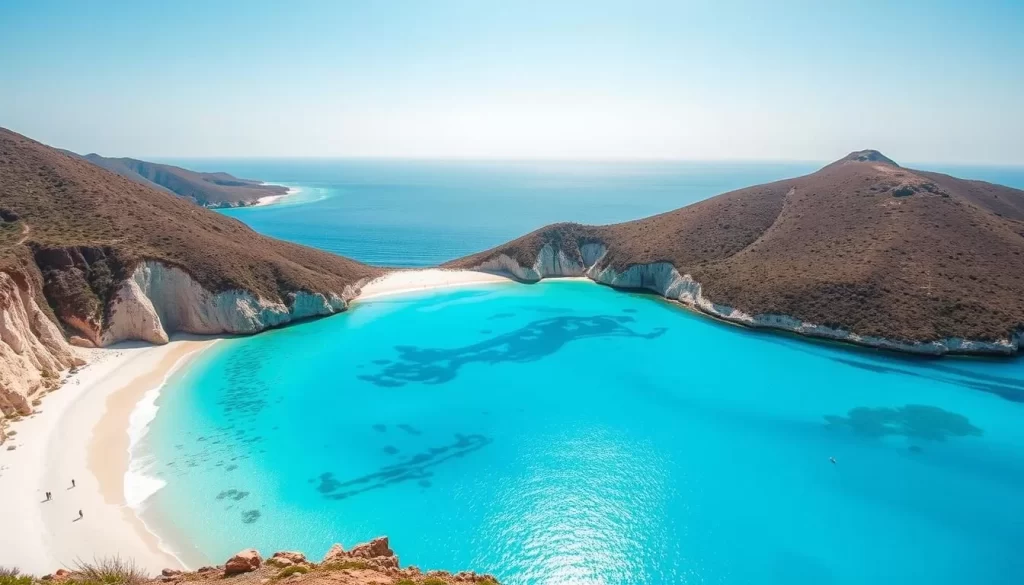
Tarrafal, on the northern tip of Santiago island, rewards visitors with its stunning curved bay of white sand and calm, crystal-clear waters that are perfect for swimming and snorkeling. Located on the north end of the island, it takes about an hour and a half to two hours to get there.
These day trips are easily arranged through local tour operators or by taxi, though renting a car gives you more flexibility to explore at your own pace and stop at scenic viewpoints along the routes.
Practical Tips for Visiting Praia
As you plan your visit to Praia, keep in mind a few practical tips to ensure a smooth trip. Praia, the capital of Cape Verde, is a unique blend of cultures and landscapes, and being prepared will enhance your experience.
Money Matters: Cash is King
When traveling to Praia, it’s crucial to understand that cash is predominantly used. Bringing sufficient cash is advisable as credit cards are rarely accepted outside major hotels, and ATMs can be unreliable with frequent outages and withdrawal limits. Make sure to plan ahead and be aware of your cash reserves to avoid any inconvenience during your trip.
Language and Communication
Portuguese is the official language, but you’ll also hear Crioulo, a Portuguese creole language, widely spoken among locals. While English is becoming more common in the service industry, learning basic Portuguese phrases can be helpful. Many locals, especially in tourist areas, speak some English, making it easier for visitors to navigate.
Safety Tips for Travelers
To stay safe in Praia, take common-sense precautions. Avoid walking alone at night in isolated areas, keep your valuables secure, and be mindful of your surroundings, especially in crowded markets. By being aware and prepared, you can have a safe and enjoyable trip.

- Plan your finances by bringing enough cash and understanding the local currency.
- Learn a few basic Portuguese phrases to enhance your interaction with locals.
- Stay safe by being aware of your surroundings and keeping valuables secure.
Conclusion: Making the Most of Your Praia Adventure
As you conclude your journey through Praia, Cape Verde, you’ll find that this hidden gem offers a rich tapestry of experiences. With its unique blend of African and Portuguese influences, Praia is a city that will captivate your senses. To make the most of your trip to Praia, balance your time between the historic city center attractions, beautiful beaches, and day trips to nearby sites like Cidade Velha and Serra Malagueta.
The best time to visit Praia is during the dry season, from November to June, with November offering particularly good value. Whether you’re drawn to the history of the Plateau district, the relaxation of Quebra Canela beach, or the cultural immersion of Sucupira Market, Praia offers diverse experiences that will create lasting memories. As you plan your visit to Cape Verde, remember that the journey itself is an essential part of the adventure.
The above is subject to change.
Check back often to TRAVEL.COM for the latest travel tips and deals.
